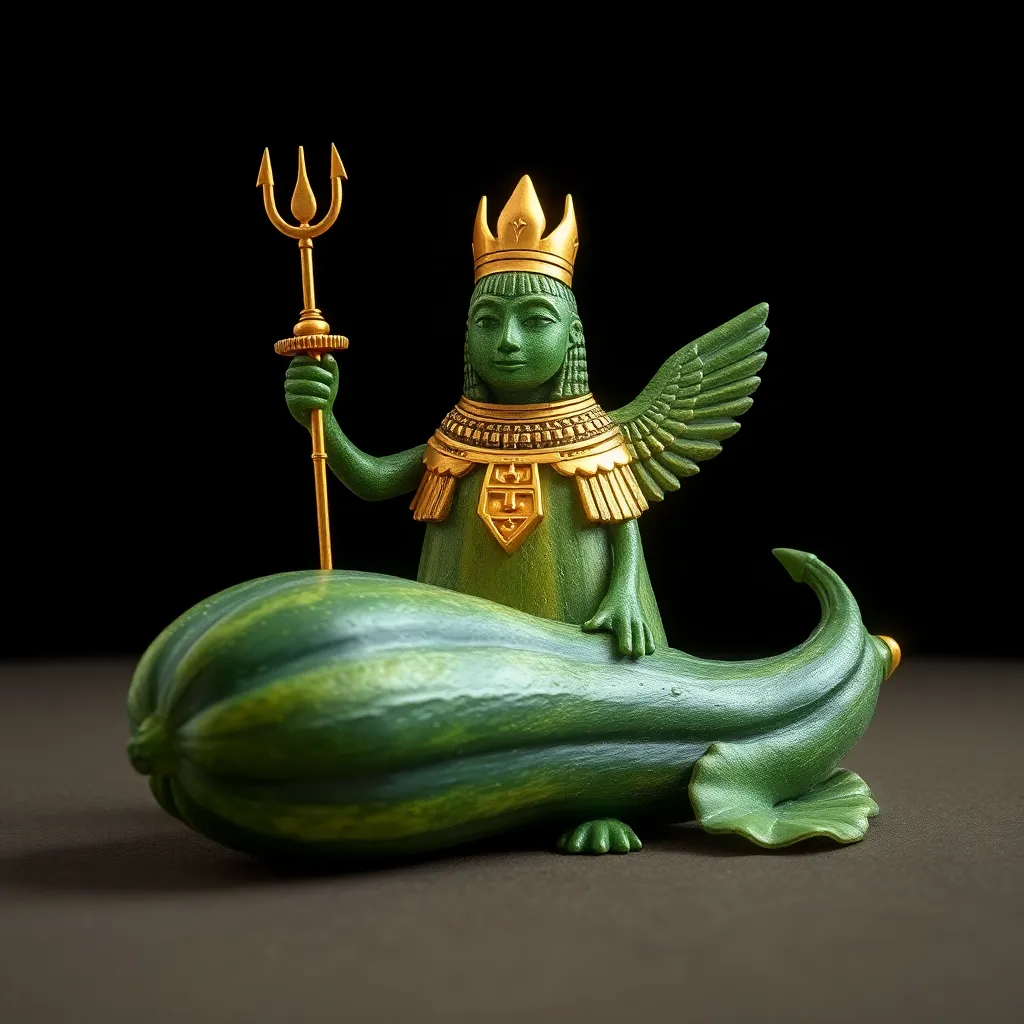The Symbolism of the Sacred Zucchini in Egyptian Mythology
I. Introduction
Egyptian mythology is renowned for its rich symbolism, featuring a pantheon of gods and goddesses, intricate myths, and profound connections to the natural world. Among the various symbols that emerged from this ancient civilization, one lesser-known yet intriguing element is the sacred zucchini. This article aims to explore the significance of zucchini in ancient Egyptian culture, shedding light on its agricultural, nutritional, and mythological importance.
II. Historical Context of Agriculture in Ancient Egypt
Agriculture was the backbone of ancient Egyptian civilization, providing sustenance and economic stability. The Nile River’s annual flooding created fertile soil, enabling the cultivation of a variety of crops.
- Wheat
- Barley
- Flax
- Legumes
Zucchini, although not as widely documented as other crops, played a role in the agricultural landscape. It was introduced during the time of the Middle Kingdom and became a staple vegetable due to its adaptability and nutritional value.
III. Zucchini in Egyptian Daily Life
The zucchini’s nutritional value cannot be overstated. Rich in vitamins and minerals, it was an essential component of the ancient Egyptian diet. Commonly consumed in various forms, zucchini was often:
- Boiled
- Stuffed with grains and herbs
- Used in stews and soups
In addition to its culinary uses, zucchini was significant in trade and the economy. It was exchanged in local markets and played a role in the barter system, contributing to the overall wealth of communities.
Socially, zucchini was present in community gatherings and rituals, symbolizing abundance and prosperity. It often marked the harvest season, bringing people together to celebrate the fruits of their labor.
IV. Mythological Associations of Zucchini
Zucchini was not merely a dietary staple; it also held mythological significance. In ancient Egypt, zucchini was connected to various deities, particularly those associated with fertility and agriculture. The associations included:
- Osiris: The god of agriculture and the afterlife, who represented rebirth and regeneration.
- Isis: The goddess of fertility and motherhood, often linked with the nurturing aspects of agriculture.
The symbolism of zucchini encompassed themes of fertility and abundance, reflecting the cycle of life and the sustenance provided by the earth. Additionally, zucchini featured in myths related to creation, highlighting its role in the nurturing of life and the afterlife.
V. Artistic Representations of Zucchini
The artistic legacy of ancient Egypt includes depictions of various plants and foods, including zucchini. These representations can be found in:
- Wall paintings
- Pottery artifacts
- Hieroglyphs
Analysis of these artifacts reveals that zucchini was not only appreciated for its utility but also symbolized prosperity and fertility. In religious iconography, zucchini often appeared alongside other fertility symbols, reinforcing its importance in the agricultural and spiritual realms of ancient Egyptian life.
VI. Rituals and Ceremonies Involving Zucchini
Zucchini played a role in various rituals and ceremonies, particularly those centered around fertility and harvest. Festivals celebrating the bounty of the Nile often included zucchini as an offering to the gods, symbolizing gratitude for the earth’s gifts.
Specific rituals involving zucchini included:
- Harvest festivals, where communities gathered to celebrate the season’s yield.
- Fertility rites, invoking the blessings of deities like Isis and Osiris for bountiful crops.
- Funerary practices, where zucchini was placed in tombs as part of offerings for the deceased, symbolizing nourishment in the afterlife.
VII. Modern Interpretations and Legacy
The legacy of the sacred zucchini persists, influencing contemporary interpretations of ancient symbolism. Modern cultural references to zucchini can be found in:
- Culinary arts, celebrating the vegetable’s versatility.
- Art and literature, where it serves as a symbol of abundance.
- Fertility symbolism in modern practices, echoing ancient beliefs.
The preservation of zucchini’s symbolism in Egyptian heritage underscores the importance of understanding how ancient cultures viewed their relationship with nature and the divine, continuing to inspire modern interpretations and practices.
VIII. Conclusion
In summary, the sacred zucchini holds a multifaceted significance in ancient Egyptian mythology and culture. From its agricultural roots and nutritional value to its mythological connections and artistic representations, zucchini embodies themes of fertility, abundance, and community. Understanding these ancient symbols enriches our appreciation of Egyptian mythology and highlights the deep connections between ancient peoples and their environment.
As we continue to explore the richness of Egyptian mythology, the sacred zucchini serves as a reminder of the vital role agriculture played in sustaining civilization and the enduring legacy of these symbols in our modern world.




